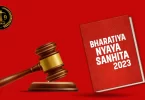AN UNGENTLE PAGE
ON November 20, 1727, the poet Savage, illegitimate son of Ann, Countess of Macclesfield, committed a manslaughter in a drunken brawl at an ill-famed coffeehouse near Charing Cross. For this crime he stood his trial at the Old Bailey, in the following December, before Sir Francis Page. Mr. Justice summed up the evidence in a clear and logical manner, but what he is further reported to have said is not quite so creditable to him. The conclusion of his address was in these words: “Gentlemen of the jury, you are to consider that Mr. Savage is a great man, a very great man, a much greater man than you or I, gentlemen of the jury; that he wears very fine clothes, much finer clothes than you or I, gentlemen of the jury ; that he has abundance of money in his pocket, much more money than you, or I, gentlemen of the jury: but, gentlemen of the jury, is it not a very hard case, gentlemen of the jury, that Mr. Savage should therefore kill you or me; gentlemen of the jury? “





